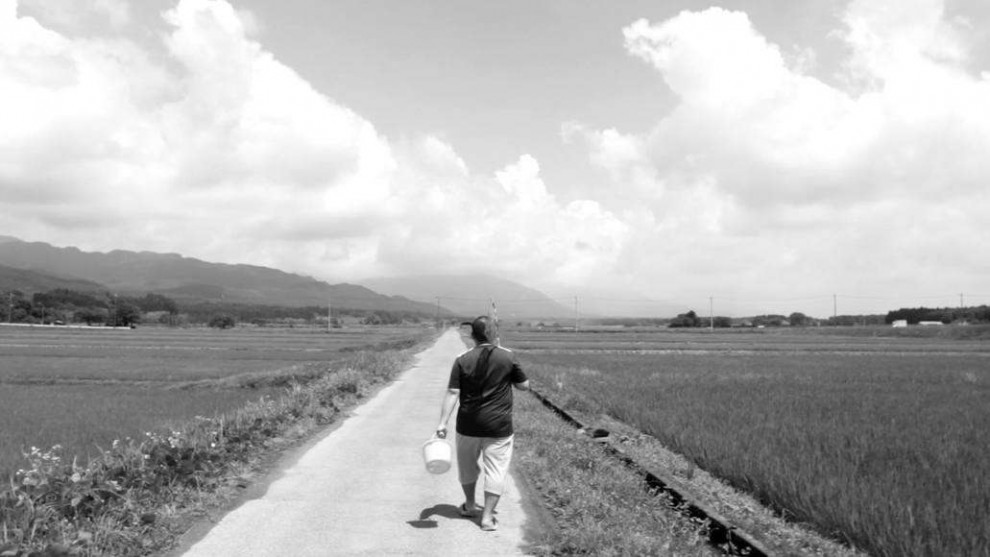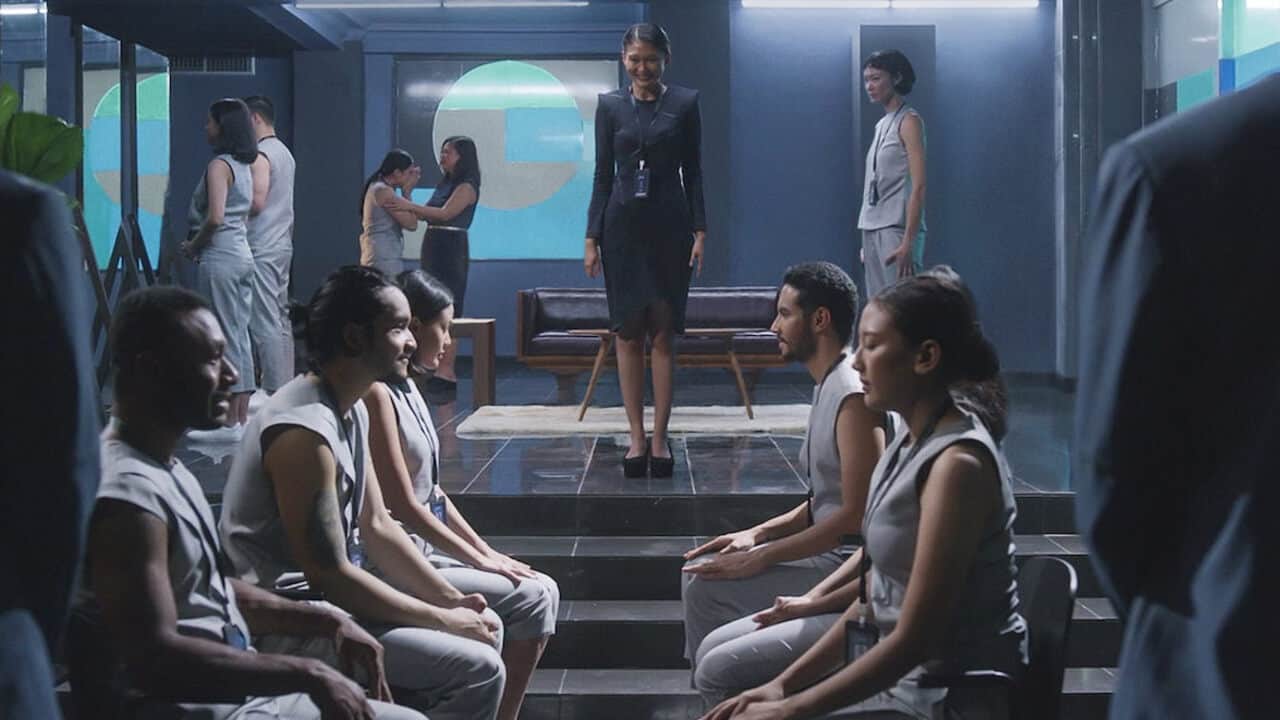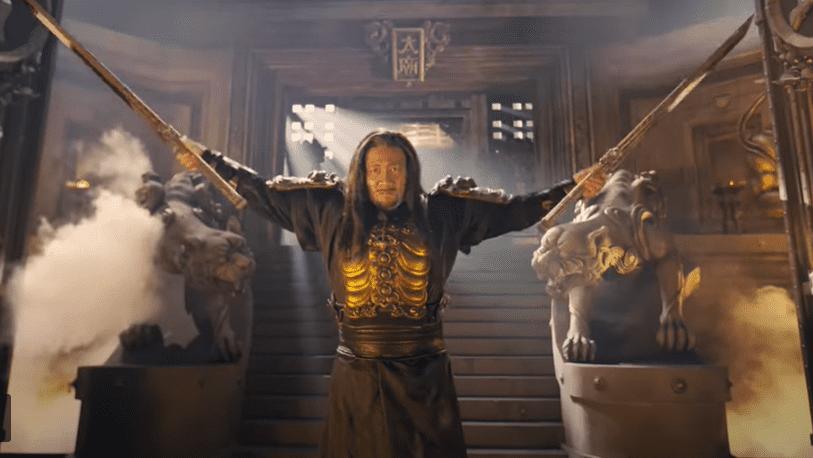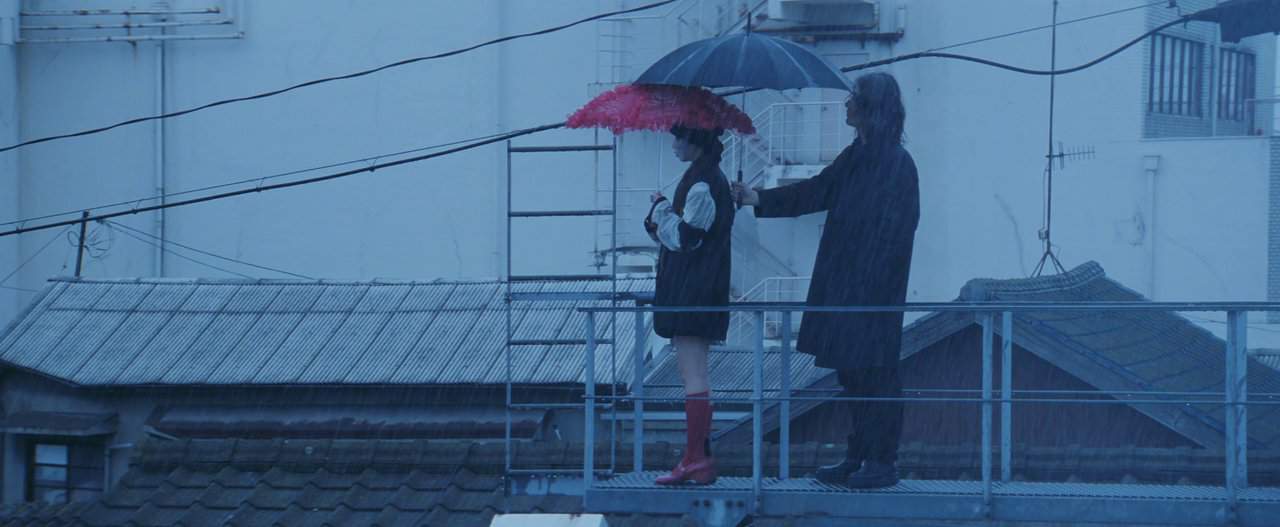Let us take things from the beginning. Hirobumi Watanabe is not your usual director, as proven quite eloquently in the other films of his I have watched, “Poolsideman” and “Party ‘Round the Globe“, two very interesting, but also very strange productions. For his fifth film, though, Watanabe went a step even further, since he seems to have managed to shoot a movie from the fact that he had no idea of what his next movie would be about…
“Life Finds A Way” is available from Article Films
In the kind of the narrative, we watch Watanabe himself as a director who is trying to write a script, but seems to be stuck on ideas. The film continues in two axes, one focusing on his life as a filmmaker and the other as an actual person. In that fashion, we watch him meeting a producer, being chastised about his behaviour in festivals, praying to a temple to give him inspiration etc. As a person, which takes the larger part of the film, we watch him talking on the phone about video games and football, playing video games in a room filled with books and dvd while his grandmother is there, his interactions with a library and its clerk (most of which do not end up good for him), fishing on the side of the street with a little girl and many others. Of course, the sequence that has become something of a trademark of his, with him talking nonstop about everything in a car to a person who does not respond, is here once more, in a number of sequences, while a section where the various individuals that appear in the film answer some of his questions about cinema concludes the rather episodic narrative.

The film also unfolds as a kind of an opera, with different acts, whose intervals are filled with the music the of Triple Fire band, whose style moves somewhere between the folk and the post punk, much like Michiro Endo's, and manages to fit the general aesthetics of the film strangely, but quite nicely.
Evidently, this is a difficult film to review, as it is more a collage of different ideas than a compact movie. However, one thing I can say for sure. Hirobumi Watanabe has a great sense of humor and the film is filled with it in a style filled with irony and self-sarcasm, that actually carries the movie for the most part of its duration. One can only laugh in the scene where he is screaming at the dentist for no apparent reason or for when he talks about critics or when the voice coming from the answering machine tells him that his purpose in Karlovy Vary film festival was not to get drunk every night.
The irony derives from an almost “blasphemous” sense of mocking about a number of institutions and facts conceived as common knowledge, like the “three meals per day” or being silent in a library. Watanabe's harshest irony, though, seems to regard the movie industry, as presented through his interactions with a producer's company, his own monologues in the car (about crowdfunding for example) and even the audience, with the latter depicted in the interview sequence. Again, one has to laugh in this last part when the little girl says that both her favorite director and actor is Watanabe himself, only to reveal later that he was the one who asked her to say so. Directors and particularly himself do not escape from this mocking, in another hilarious but also quite sincere and brave aspect of the film.

The sum of these different sequences also functions as a quite brave self-portrait, with Watanabe putting much of his actual self on film (probably, I do not know the man personally, although I know of him) which reveals an individual that frequently acts as a child, but fully owns the fact.
“Overture” is not an easy film to watch, being shot in black and white, having no compact narrative and with a duration of more than 2 hours. If one was to focus, though, in the intelligent irony, the great humor, and the permeating sense of self-sarcasm, one can really enjoy this rather unique film.















